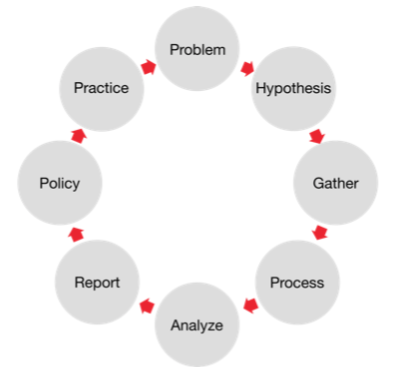
With discussions of the growing prospects for automating work spreading to more and more tasks and professional groups, it may well be time to start considering the ways in which the various dimensions of the educational research process may be automated. To get started on what will amount to a bit of a thought experiment at this point, let’s consider the stages of the educational research and development cycle.
I have divided the cycle of activities that make up educational research and development into eight stages: problem identification, hypothesis generation, data gathering, data processing, data analysis, reporting, policy formation, and practice. Each of these eight stages is currently conducted by researchers through labor intensive, largely manual, activities, though over the course of the last 50 years there has been greater use of technology in a least some of the stages. For example, data analysis is now conducted with the use of specialized statistical software.
In eight posts to follow (one per stage) I will consider how the activities of a particular stage might be automated to operate largely without the direct intervention of researchers. Of course, researchers will need to be engaged in the design, maintenance, and improvement activities that support the automated operation of the system.


Be the first to comment